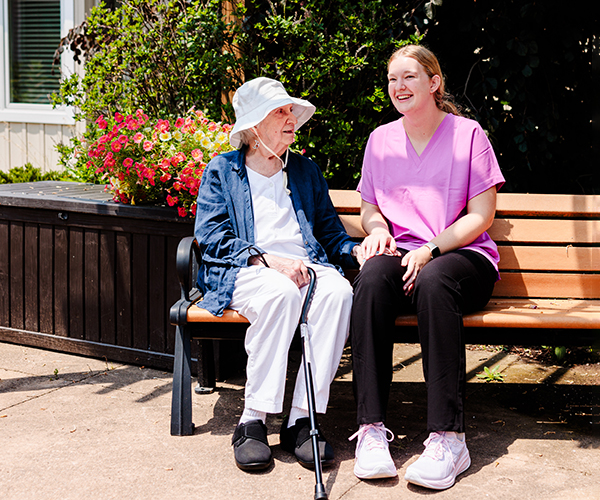Melissa Medina is proud of her Puerto Rican heritage. But she also knows that her culture’s traditional cuisine can be unhealthful. “All of our cultural foods are really bad for us,” she explains. “Everything is carbs or fried.”
Medina realized the impact such food can have when her father died in 2006 at the age of 55. After living with heart disease and going through open-heart surgery in 2003, Medina’s father suffered a stroke on New Year’s Eve 2005. He died eight weeks later, leaving Medina, 34, to care for her 13-year-old stepbrother.
“That was the only parent my brothers and I had,” Medina recalls. “It was very different. Even though he was my little brother, I had never raised him. His mother had a stroke when she was pregnant and he was premature and is mentally delayed. It was challenging when he fell in my lap because I had to make sure his special needs were taken care of.”
That experience of raising her brother has led Medina to adopt a heart-healthy lifestyle and diet. “I am convinced my father’s early death is connected to our culture and, especially, to the diet of our Puerto Rican heritage,” she says. “So my message is simple: People in the Hispanic community need to be proud of our culture and traditions, but we need to make a few changes in our diet and we need to exercise.”
Medina practices what she preaches. “I try to make sure we always do some sort of physical activity,” she says. “We go on bike rides or roller skating, and we go to the Gunning Recreation Center on the West Side [of Cleveland] for kick boxing.”
Medina has also adopted a healthier menu, while still preserving her Puerto Rican roots. “I try to modify it to make it a healthy version,” she says of her cooking. For instance, instead of frying traditional meat pockets with ground beef, she uses ground turkey and bakes them. “I’ve had no complaints,” she says.
Go Red For Women has allowed Medina to voice her convictions. “It’s important for all [Hispanic] women to let them know that if they just try to modify the way they cook for heart-healthy reasons it would be so much better for them,” she says. “We don’t want to lose our culture.”
Medina realized the impact such food can have when her father died in 2006 at the age of 55. After living with heart disease and going through open-heart surgery in 2003, Medina’s father suffered a stroke on New Year’s Eve 2005. He died eight weeks later, leaving Medina, 34, to care for her 13-year-old stepbrother.
“That was the only parent my brothers and I had,” Medina recalls. “It was very different. Even though he was my little brother, I had never raised him. His mother had a stroke when she was pregnant and he was premature and is mentally delayed. It was challenging when he fell in my lap because I had to make sure his special needs were taken care of.”
That experience of raising her brother has led Medina to adopt a heart-healthy lifestyle and diet. “I am convinced my father’s early death is connected to our culture and, especially, to the diet of our Puerto Rican heritage,” she says. “So my message is simple: People in the Hispanic community need to be proud of our culture and traditions, but we need to make a few changes in our diet and we need to exercise.”
Medina practices what she preaches. “I try to make sure we always do some sort of physical activity,” she says. “We go on bike rides or roller skating, and we go to the Gunning Recreation Center on the West Side [of Cleveland] for kick boxing.”
Medina has also adopted a healthier menu, while still preserving her Puerto Rican roots. “I try to modify it to make it a healthy version,” she says of her cooking. For instance, instead of frying traditional meat pockets with ground beef, she uses ground turkey and bakes them. “I’ve had no complaints,” she says.
Go Red For Women has allowed Medina to voice her convictions. “It’s important for all [Hispanic] women to let them know that if they just try to modify the way they cook for heart-healthy reasons it would be so much better for them,” she says. “We don’t want to lose our culture.”



